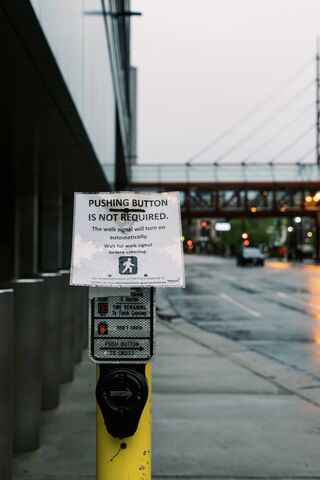Coronavirus Disease 2019
Tips for Coping with Reopening During COVID-19
We're in the same storm but different boats.
Posted May 31, 2020 Reviewed by Gary Drevitch

I thought that when lockdown ended I would just feel relief. But much to my surprise, the relief was accompanied by anxiety, fear, sadness, anger, and feeling overwhelmed. It actually makes sense that we would feel a mixture of emotions. So first recognize that this is a very normal reaction. Here are some tips on how to cope with re-opening:
- Charge your frontal lobe. We’ve discussed that, psychologically, living in the pandemic is like living in an active war zone. And just because things are re-opening does not mean we have a “peace treaty” with the virus. The threat remains and we do not know how or what it will look like as we move forward. Thus, our caveman brains continue to be “on fire” due to the ongoing threat. Furthermore, there is great uncertainty in this next phase. We are not returning to “normal"; we are figuring out some “new normal," but caveman brains hate uncertainty. Whatever is required of us in the next phase, having a charged frontal lobe will give us the energy to manage the new demands. We also can’t pretend that the stress of this pandemic is over: We need to remain dedicated to protecting our mental health at every stage.
- Know your values: We’re all in the same storm but we’re in different boats. Because there is uncertainty in public health recommendations, we need to reflect on what’s most important to us to guide our behaviour. Understanding what matters most—our values—can help us make decisions amid this uncertainty. Each person or family will have a different level of risk tolerance for what they can resume post-lockdown. In my immediate family, no one is at particularly high risk of infection. But I work at a hospital with cancer patients. All of my patients are immune-compromised and have no choice about coming into the hospital to continue getting cancer treatments. Part of my values is about protecting people who are vulnerable. Therefore, it’s important for me to protect my patients by continuing to remain as isolated as possible from others. There will be individual differences in risk levels. Some individuals at higher risk may need to continue to stick with lockdown strategies. Because of my job at the hospital I am not facing financial uncertainty the way many others are. Thus it also makes sense that other individuals may need to tolerate more risk because they are facing different hardships. I also was not in lockdown alone; I had family with me. Others may have been more isolated, which comes with its own mental health cost. Therefore, they may accept a higher risk because their social needs are a higher priority. We want to be clear on our own values so we can stand by our decisions and communicate them to others. We also need to be compassionate to others whose needs and values may differ from ours. As I heard someone put it, "We’re all in the same storm but we’re in much different boats." Our job is to clearly communicate our own situation and respect that others will have a different calculation of risk than us.
- Stay in the present moment. Because of the uncertainty in this next phase, we are likely to notice our caveman brain get into problem solving. This is a normal thing for caveman brains to do. The problem is that our caveman brains are likely to try to get us to problem solve far into the future. For example, I noticed myself problem solving what to do if my child has to go back to school in September. The issue with problem solving so far ahead is that we don’t have enough information to effectively problem solve. Thus we end up problem solving 10 different options for the future (e.g., if this happens, I can do this but if that happens then maybe I could do that…). Trying to deal with that many possibilities is actually overwhelming. But only one of those futures will actually happen. When we get closer, we will have more information and be better able to problem solve. Thus, problem solving 100 steps ahead is wasted effort. Even though our caveman minds tell us it will alleviate our anxiety if we just solve the problem, it actually makes us more anxious and overwhelmed. If you notice yourself problem solving 100 steps ahead, come back to the present moment and just problem solve the next step. Sometimes the next step is “What am I going to have for lunch?" Sometimes the next step is about what you can do to charge your frontal lobe right now (which will help us make better decisions and problem solve more effectively).
One way to come back to the present moment is to notice your 5 senses. Our minds are often in the past or the future whereas our 5 senses are always in the present moment. We can’t smell something 2 years in the future; we can imagine what it smells like but we can’t actually smell it. So notice 2 things you can see (e.g., I can see the blue carpet, I can see the white wall) or 2 things you can hear (e.g., I can hear the hum of the computer, I can hear the cars on the street) or some other way to connect with your senses and return to the present moment. Remind yourself when you’re 100 steps ahead that “when we get there, we’ll get there, and then we can problem solve."


